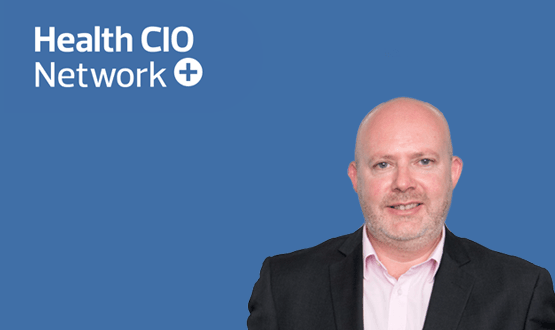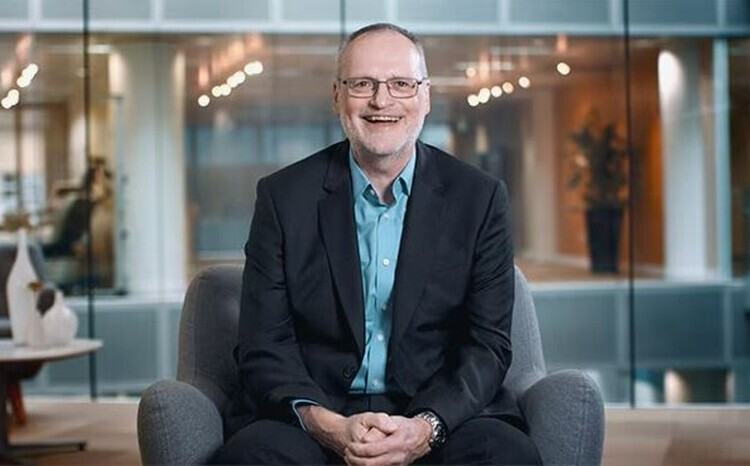The CIO interview: Mark Stanton, The Dudley Group NHS Foundation Trust
- 18 June 2018

The latest CIO to put themselves forward for Digital Health’s profile series is Mark Stanton, from The Dudley Group NHS Foundation Trust. Mark tells us about the some of the biggest achievements of the trust over the past 12 months, and offers some sage advice about time-travelling.
Why did you become an NHS CIO?
I have had a fairly diverse career across multiple sectors including telecoms and automotive. I joined the NHS in 2014 after spending a number of years with an NHS private sector provider. I could see the benefit well planned fit for purpose digital programmes could bring to the NHS, so I made the switch.
When did your interest in IT begin?
I started my career as an electronics apprentice fixing telephones (mostly cleaning them!) in a workshop. The service department wanted somebody to help move from cardex to computer, I volunteered not really knowing what it involved but assumed it was likely to be more interesting that cleaning phones. One year later I was UNIX engineer for the IT department and it started there.
Within your organisation, what is the most significant digital achievement of the past 12 months?
That’s an easy question, this month we implemented the first phase of our EPR project which was to roll out eObs across the whole trust. Over a weekend we went from paperwork to 4,000 observations a day recorded digitally and in many cases getting staff to use an electronic system for clinical care for the first time. A week down the line, it’s satisfying to see how IT is helping manage deteriorating patients.
We are rolling out full EPR functionality this year, including a population health solution across the local economy where we have already successfully completed a proof of concept at a small number of surgeries, that we can directly interface between the trust EPR/PAS and the practice manager systems. This is a first of its type in the UK and an opportunity for the internal IT team to deliver real value.
What will be the most significant development in healthcare over the next 12 months?
New models of care need to take shape and start to deliver over the next 12 months, with greater collaboration. My local health and social care economy is moving to a multispeciality community provider model and it’s critical we get the right systems and technology to move to a population health model very quickly.
What’s the largest barrier to being a more effective CIO?
One of the challenges is recruiting new talent to the team. We struggle to attract IT professionals from outside the NHS. Whilst the NHS has some great IT people, we would benefit from IT professionals from other sectors to bring in experience and knowledge that would supplement the healthcare IT knowledge and take advantage of some of the advancements from other sectors. We don’t always need to re-invent!
What’s the largest barrier the NHS faces overall in achieving digital transformation?
I see no single barrier, just a number of challenges and ultimately as an NHS CIO collective it’s up to us deliver digital transformation. Breaking down barriers is the first line on an NHS CIO job description.
If you have one piece of advice for other NHS CIOs, what would it be?
Have the discussion with your CEO about how the digital agenda is represented at board level. I’m fortunate enough to have a place on the trust board – it helps ensure the digital agenda is embedded into the overall strategy of the trust.
Who in the NHS do you admire the most and why?
I can’t see any other answer than this than our wonderful front line staff, who provide care to patients every day.
If you were given £30 million to spend on digital transformation within your trust, where would that money go?
We have recently committed a similar amount on our new EPR and infrastructure, but in terms of additional investment, I would like to complete our population health project in the local economy and start to link to the wider STP when it becomes more mature. Within the trust itself, I would like to be able to provide the appropriate device (PC, tablet, smartphone) to be able to best utilise digital services for patient care.
What is the most over-hyped digital innovation in health?
AI, it’s certainly got a place in the future of healthcare but the underlying technology still needs to develop further before it becomes fully trusted, and it may be more sensible to let it develop in sectors that have larger R&D budgets.
What is the most under-rated digital innovation in health?
Maybe not under-rated but certainly taking a backseat to new “innovative” technology is the EPR. “Record, share, support” – it’s the foundation of the digital architecture of any healthcare organisation and without a properly-implemented and adopted system, you can’t even start to look at other technology, as you have no information.
And a few non-digital questions for fun…
What’s the worst job you’ve ever had and why?
I worked in a large warehouse performing quality assurance, unpacking boxes, checking the components were inside and replacing back on the shelf. To this day I have no idea what I was actually checking for, other than there was something in the box. I can’t think what value I added other than getting in the way.
If you could travel back in time to meet one person, who would it be?
I’ve seen enough sci-fi films to know you should never go back and interfere with the past!
What’s the last song you listened to (be honest!)
Wonderful Wonderful – The Killers
What’s your favourite piece of technology at home and why?
Sonos with built-in Alexa. I’m a bit of a frustrated DJ and keep changing tracks.
If you could have any other job, what would it be?
I would love to run my own restaurant, although I’m probably too liberal with my ingredients to make it commercially viable.
In a film of your life, who would play you?
I sought advice on this question and apparently Jason Statham. If nothing else, we share the same age and hairstyle



